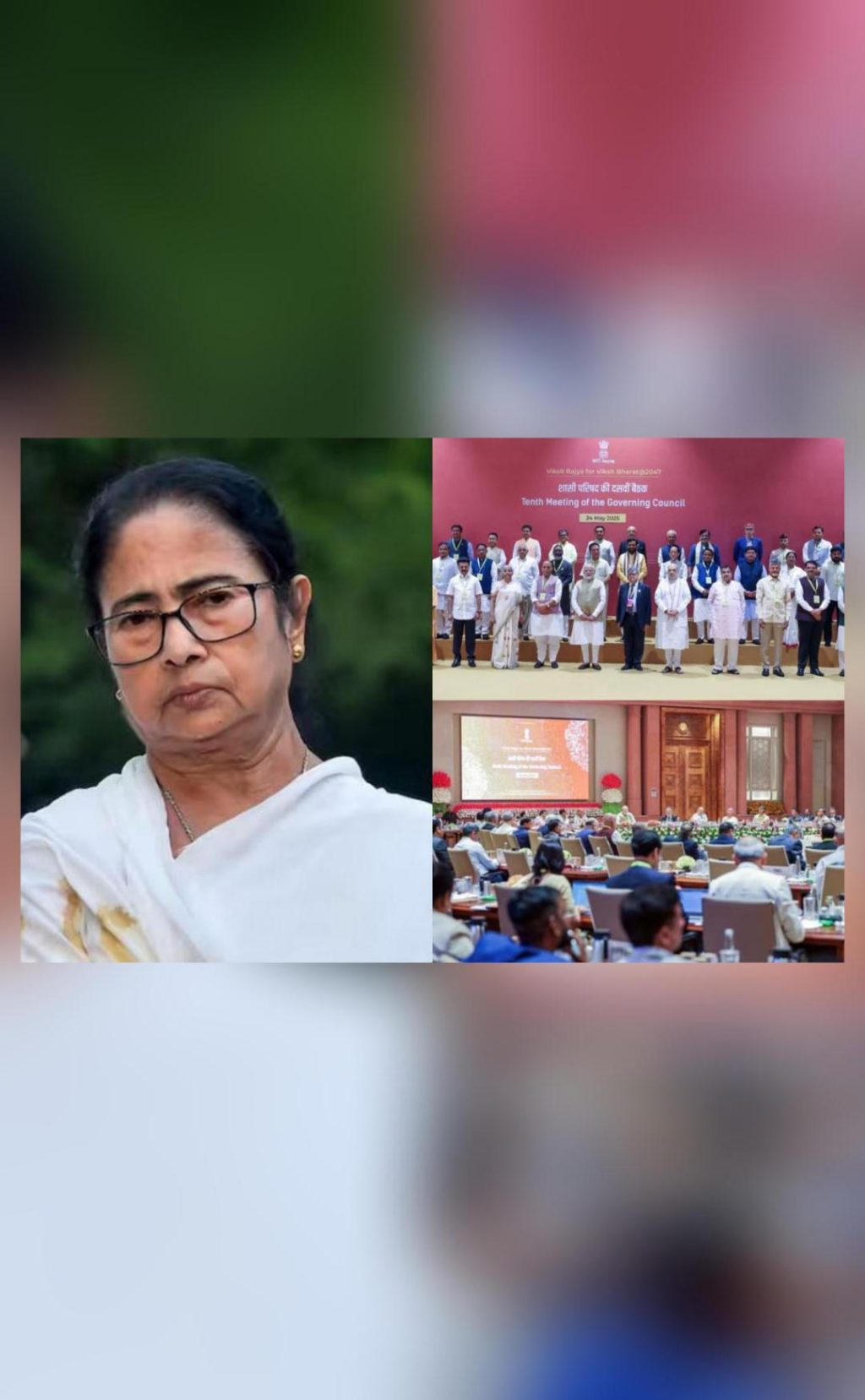
Title: To satisfy her political ego: BJP as Mamata skips NITI Aayog meet
In a recent development that has sparked a political row, West Bengal Chief Minister Mamata Banerjee skipped the NITI Aayog meeting on Saturday, which was attended by Prime Minister Narendra Modi and Chief Ministers of various states. The meeting was the first major gathering of state Chief Ministers and Lt. Governors of Union Territories after ‘Operation Sindoor’, a significant event that marked a shift in the Centre’s approach towards governance.
The NITI Aayog meeting was attended by 18 Chief Ministers, including those from the BJP, Congress, and other parties. However, Mamata Banerjee, who had been invited to the meeting, chose to skip it, citing “prior commitments”. The decision has been heavily criticized by the BJP, with leader Samik Bhattacharya calling it “unfortunate” and stating that Mamata chose to skip the meeting to satisfy her political ego and sacrificed the interest of the state.
The NITI Aayog meeting was a crucial event, as it brought together the country’s top leaders to discuss issues of national importance, including the COVID-19 pandemic, economic growth, and infrastructure development. The meeting was seen as an opportunity for the Prime Minister to engage with the Chief Ministers of different states and discuss ways to address the country’s challenges.
Mamata Banerjee’s decision to skip the meeting has been seen as a reflection of her growing discontent with the Centre’s policies. The West Bengal Chief Minister has been a vocal critic of the BJP-led government, and has often clashed with the Centre over issues such as the CAA and NRC.
The BJP, on the other hand, has accused Mamata Banerjee of being driven by her political ego and not being interested in the welfare of the state. Samik Bhattacharya, a senior leader of the BJP, said that Mamata’s decision to skip the meeting was “unfortunate” and that she had sacrificed the interest of the state for her own political gain.
“Mamata Banerjee skipped the meeting to satisfy her political ego and sacrificed the interest of the state. She is not interested in discussing the issues that affect the state and its people,” Bhattacharya said.
The BJP’s criticism of Mamata Banerjee has been echoed by other leaders of the party, who have accused her of being selfish and not willing to work with the Centre to address the country’s challenges.
“Mamata Banerjee’s decision to skip the meeting is a reflection of her narrow-minded approach to politics. She is more interested in protecting her political interests than in working for the benefit of the state and its people,” said a senior BJP leader.
The opposition parties, on the other hand, have defended Mamata Banerjee’s decision to skip the meeting, calling it a “wise” decision. The Communist Party of India (Marxist) said that Mamata Banerjee had taken the right decision, as the NITI Aayog meeting was not a platform for meaningful discussion and cooperation.
“The NITI Aayog meeting was a platform for the Centre to dictate its terms to the states. Mamata Banerjee was right in skipping the meeting, as it was not a platform for meaningful discussion and cooperation,” said a CPI(M) leader.
The Congress party has also come out in support of Mamata Banerjee, saying that her decision to skip the meeting was a “bold” move.
“Mamata Banerjee’s decision to skip the meeting is a bold move, as it shows that she is not afraid to take a stand against the Centre. The BJP and the Centre are trying to impose their will on the states, but Mamata Banerjee has refused to bow down,” said a Congress leader.
In conclusion, Mamata Banerjee’s decision to skip the NITI Aayog meeting has sparked a political row, with the BJP accusing her of being driven by her political ego and not being interested in the welfare of the state. The opposition parties, on the other hand, have defended her decision, calling it a “wise” move. The controversy surrounding Mamata Banerjee’s decision to skip the meeting is a reflection of the growing divide between the Centre and the states, and the need for greater cooperation and discussion between the two.






